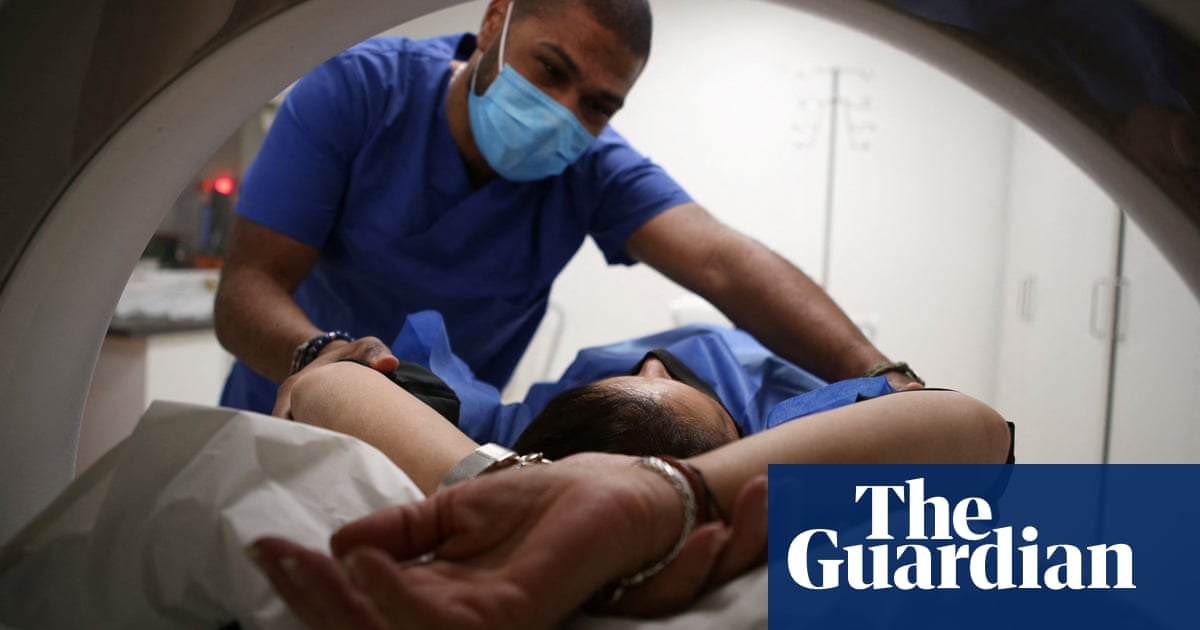
The number of people under 50 being diagnosed with cancer in the UK has risen 24% in two decades, a sharper increase than any other age group, according to figures experts say are likely linked to soaring obesity levels, cheap junk food and inactivity.
Early onset incidence rates grew from 132.9 per 100,000 people in 1995 to 164.6 in 2019, analysis of data shows. About 35,000 under-50s are now developing cancer every year, almost 100 young women and men a day, the research reveals.
Meanwhile, there is mounting concern that a global epidemic of cancer among young people may be emerging. The explosion in cases was a key focus of discussion this weekend at the world’s largest cancer conference, the annual meeting of the American Society of Clinical Oncology (ASCO).
Experts are still in the early stages of understanding the reasons behind the rise in cases. But most believe poor diets, physical inactivity and obesity are likely to be among the factors behind the surge in cancer rates among young people in the UK.
Incidence rates have grown among all ages in the last two decades. But the 24% increase among the under-50s is much higher than the rises seen among other age groups.
Prof Charles Swanton, Cancer Research UK’s chief clinician, said: “Over recent decades, there has been a clear increase in cancer incidence rates in young adults in the UK. Evidence suggests that more adults under 50 may be getting cancer than ever before.”
The second biggest rise in cases was among the under-25s. Their rate increased 16%, from 16.6 cases per 100,000 in 1995 to 19.2 in 2019.
The overall incidence rate of cancer cases across all ages grew from 539 per 100,000 people in 1995 to 611.5 in 2019, according to the Cancer Research UK analysis. That represents an uptick of 13% – almost half the growth rate among the under-50s.
In those aged 50 to 74, the incidence rate climbed 14%, from 955.1 to 1,092. In the over-75s there was a 10% rise, from 2,259.7 cases per 100,000 people to 2,482.7 cases. It means the rate rise in the under-50s was more than double that of the over-75s.
Early onset cancers are still uncommon. About 90% of all cancers affect people over the age of 50.
But the trend was still “worrying”, Swanton said, with 34,945 cases in 2019, according to the analysis. That total is up 34% from 26,176 in 1995. The reason the percentage change is greater than the 24% rate rise is likely because of population growth.
“Although these cases are a small proportion of the overall population and still relatively uncommon, the trend is important, and it requires further investigation,” said Swanton.
Researchers are still in the early stages of working out why cancer may be becoming a young person’s disease, but clues are already emerging, he said.
“Increased exposure to known as well as unknown cancer risk factors, changes to lifestyles and diets over time, and rising obesity may all contribute to the uptick in early-onset cancer.” Swanton said.
Britain has one of the highest obesity rates in Europe, with two in three adults in the UK overweight or obese.
“Genetics, improvements in diagnosis and screening and the microbiome could also play a role,” said Swanton. “We are seeing them through our clinics and it is disturbing and we don’t have a good answer as to why this is happening. It really is a scientific conundrum that urgently needs to be solved.”
The surge in early onset cases is a global problem. The number of under-50s affected worldwide has rocketed by almost 80%, the Guardian reported last year.
A recent review of registry records from 44 countries found the incidence of early onset cancers was rising rapidly for bowel and 13 other types, many of which affect the digestive system.
Dr Aparna Parikh, an associate professor of medicine at Harvard medical school and an oncologist at Massachusetts general hospital, is part of Team Prospect, an international research group funded by Cancer Research UK that is studying the spike in cases.
Speaking at the ASCO conference, she said: “We want to gain a deep mechanistic understanding of biological processes and environmental causes, and to do this we’re looking at a diverse set of data and patients from all around the world.”
The boom in cases was complex, Parikh said, but added that it was likely to be “driven by various factors, including diet, the environment, and features of the microbiome”.
One study presented at the ASCO meeting added to evidence that poor diets were contributing to rising cases of bowel cancer among the under-50s.
Ohio State University said the balance of bacteria and inflammation in the gut, both of which are affected by what people eat, could cause “accelerated ageing” in the colon.
Swanton said that while researchers raced to unlock more answers, there were multiple ways people could reduce their risk.
“Around four in 10 cancer cases are preventable, and there are steps people can take to help reduce their cancer risk,” he said. “Not smoking, keeping a healthy weight, being safe in the sun and cutting down on alcohol all makes a big difference.”












